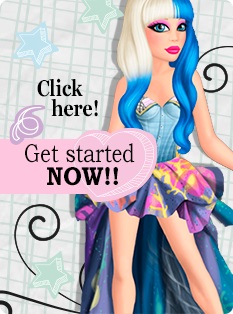There will be a summary below the text
What is the history of the International Day of Persons with Disabilities?
The International Day of Persons with Disabilities is observed on December 3rd each year by the United Nations General Assembly. The day was first observed in 1992 with the goal of promoting the rights and well-being of people with disabilities and increasing awareness of the challenges they face.
Last year we wrote a post on International Day of Persons with Disabilities, including more information about disabilities in general. This year we wish to highlight cases of ableism on goSupermodel and the increase of ableist behavior we have noticed within the community.
You can read last year’s news post HERE:
Ableism on goSupermodel:
Ableism on goSupermodel comes in many shapes and forms. In a lot of cases it is a product of our internalized ableism as a society, which can materialize through language and words, through well-intended messages, and through lack of accessibility and willingness to adapt to the needs of our community members. When facing an issue such as ableism, it is important to acknowledge that we both individually and as a society are colored by the environment we live in, and to listen and respect when we are confronted with our own taught prejudices negatively affecting people with disabilities.
A recurring issue in the forums are disability related microaggressions. These can on first glance look harmless, but still trigger a negative emotion from the people negatively affected by them.
What is Ableism?
Ableism is the idea that society places a higher value on certain types of bodies, certain types of brains, certain forms of communication, and certain ways of being in the world than it does on others. Ableism is the discrimination of and negative assumptions against people with disabilities based on the belief that typical abilities are better.
What is a microaggression?
It is an action or a comment that subtly and often unconsciously or unintentionally expresses a prejudiced attitude towards members of a marginalized group.
Some examples of common microaggressions on goSupermodel:
-
Making assumptions: Assigning negative traits to individuals based on stereotypes about disabilities. Examples: Labeling someone as lazy, undisciplined, attention-seeking, unhygienic, evil.
-
Ableist languages: Using words with ableist undertones or intentions. Examples: Terms like “dumb”, “crazy”, “lame”, or phrases like “use your brain” and “get a job”.
-
Misusing disability-related language: Inappropriately using terms tied to disabilities or mental health. Examples: Saying “delulu”, “are you blind”, or phrases like “falling on deaf ears”.
-
Generalized statements: Assuming everyone can or should perform certain tasks. Examples: “Everyone should be able to cook/clean/self care”, “just read between the lines/It’s obviously a joke”.
-
Doubting disabilities: Questioning or invalidating someone’s disability or experience. Examples: “You don’t seem disabled”, “you’re using it as an excuse”, “you’re faking it”.
-
Romanticizing disabilities: Oversimplifying or glamorizing disabilities or mental health. Examples: “I’m so OCD”, comments such as “kms” or “13th reason”.
-
Unsolicited advice and intrusive questioning: Offering unasked-for solutions or prying into personal matters. Examples: “Maybe you shouldn’t be in the forums today”, “I don’t think gSm is a good place for you”.
-
Treating someone as problematic: Viewing someone as disruptive for not conforming to ableist norms. Examples: Not being able to read undertones or see hidden context, reading joking content literally.
-
Infantilizing: Treating people as if they are less capable because of their disability. Example: Removing agency from a person to make their own choices, insisting on doing something for a person when they don’t need help, dictating how someone should be feeling or reacting.
-
Invalidating communication: Dismissing someone’s experiences, accessibility needs, or worth. Examples: “touch grass”, “you’re so inspiring for living like this”, open ridicule of accessibility changes and rules.
These can perpetuate ableism by stigmatizing, excluding, or demeaning individuals with disabilities. The list is not exhaustive.
How can I help?
-
Be open-minded and willing to adapt to users trying to educate.
-
Report harmful and invalidating behavior.
-
Show support to users with disabilities speaking up about their experiences and feelings.
-
Further seek out knowledge about ableism and how our actions can impact others.
- Our post on ableism and bullying here
Summary:
-
December 3rd is International Day of Persons with Disabilities (IDPD)
-
This day is to promote the rights and well-being of people with disabilities, and increase awareness of the challenges they face.
-
Ableism is beliefs and practices that devalue and discriminate against people with physical, intellectual, or psychiatric disabilities.
-
There has been an increase of ableist behavior on goSupermodel.
-
Microaggressions are actions or comments that subtly and often unconsciously or unintentionally express a prejudiced attitude towards members of a marginalized group.
- You can help by being open-minded, reporting harmful behavior, supporting users with disabilities, and seeking out knowledge. You can read more about ableism and bullying HERE
